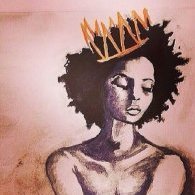Search the Community
Showing results for tags 'tanzania'.
-
The governor of Tanzania’s most-populated city, Dar es Salaam, has created a team to round up gay people. Paul Makonda urged the city’s more than four million residents to report any information they have about gay people before the crackdown starts on November 6, according to AFP. In the declaration on Monday (October 29), he said: “Give me their names. My ad hoc team will begin to get their hands on them next Monday.” Queer people can face up to life imprisonment in Tanzania if convicted of having gay sex. Makonda, who has held his position since 2016, said: “I have information about the presence of many homosexuals in our province. “These homosexuals boast on social networks.” The governor said that gay sex “tramples on the moral values of Tanzanians and our two Christian and Muslim religions.” Makonda was anticipating backlash from people who lived outside Tanzania, but said that he would “prefer to anger those countries than to anger God.” Police officers in Dar es Salaam arrested 12 men last year, accusing them of “promoting homosexuality” and engaging in gay sex. And at least 20 people were arrested for “homosexual activity” in a police raid in Tanzania’s semi-autonomous region of Zanzibar. The country’s penal code criminalises anyone who “has carnal knowledge of any person against the order of nature.” Last year, Tanzania stopped health clinics from providing HIV services, saying they “cater to homosexuals.” It is believed that 33,000 people in Tanzania died from AIDS-related illnesses in 2016. Many other countries on the continent also face oppressive actions from their government officials, with a study earlier this week finding that Malawi’s anti-gay laws mean members of the LGBT+ community are vulnerable to arbitrary arrest, physical violence and discrimination. Earlier this month, Uganda’s first LGBT+ centre was labelled a “criminal act” by Simon Lokodo, the country’s minister for ethics and integrity. He said homosexuality was “completely unacceptable” and that he would not allow it to be “popularised.” Lokodo also attempted to shut down popular music festival MTN Nyege Nyege in September, on the grounds that it catered to the “celebration and recruitment of young people into homosexuality and LGBT movement.” Despite the prevalence of anti-gay laws in Africa—where 34 countries still ban gay sex—and across the world, the Trump administration announced in July that it would not press countries to abolish their anti-LGBT laws. Mick Mulvaney, a former Republican lawmaker who is Director of the Office of Management and Budget, criticised President Barack Obama’s administration for using taxpayer dollars “to discourage Christian values in other democratic countries.” He added: “It was stunning to me that my government under the previous administration would go to folks in sub-Saharan Africa and say, ‘We know that you have a law against abortion, but if you enforce that law, you’re not going to get any of our money. “‘We know you have a law against gay marriage, but if you enforce that law, we’re not going to give you any money.'” He added: “That is a different type of religious persecution that I never expected to see. I never expected to see that as an American Christian, that we would be doing that to other folks.” Source

